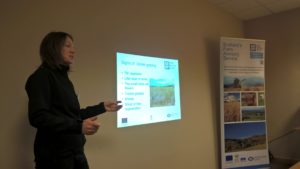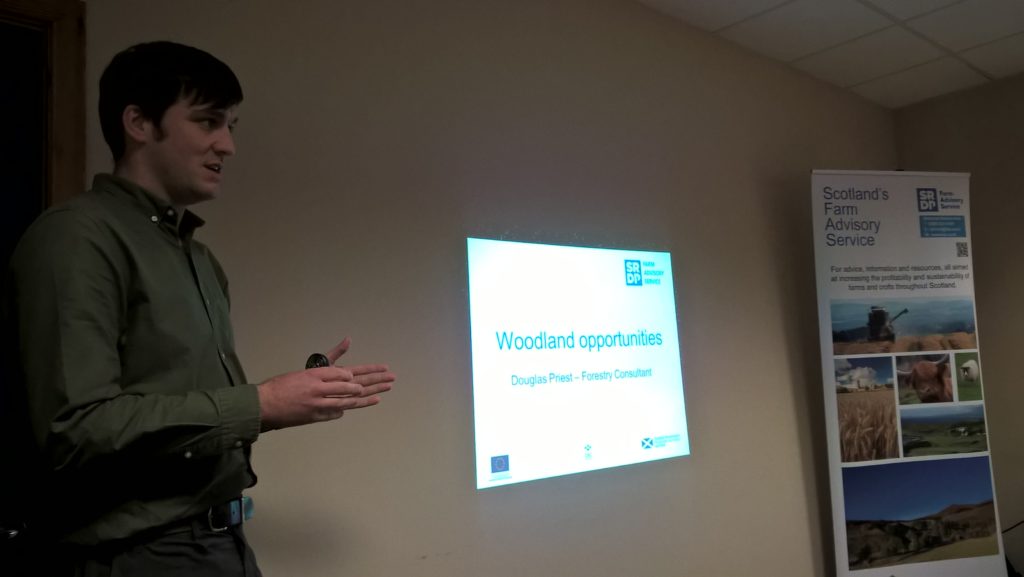New Entrants to Farming: Management of Marginal Land – Event Summary
16 December 2017 Management of marginal land and the habitats within them is vital to Scotland and particularly in the highlands where the quality of land can be highly variable. Well thought out habitat management in the form of grazing can maintain the financial viability of a business and at the same time enhance the habitat and biodiversity within it. Take home messages included;
Management of marginal land and the habitats within them is vital to Scotland and particularly in the highlands where the quality of land can be highly variable. Well thought out habitat management in the form of grazing can maintain the financial viability of a business and at the same time enhance the habitat and biodiversity within it. Take home messages included;
- The importance of maintaining rough and species-rich grass for the benefit of pollinators.
- Cattle are the preferred grazers for fragile habitat types as they are more selective in their preferences and grazing habits than sheep.
- Tackling climate change is as much about conserving soil as it is anything above ground.
- Although small units may be stretched for ground the benefits of woodlands can be longer lasting than any financial incentive, so it is something to consider.
Also, a special thanks to regular attendee Todd Ferguson who has recently set up his own small agricultural business and is producing South African inspired cured beef, of which he brought in for the group to sample.
- Gillian McKnight Marginal Land Presentation
- A presentation by Gillian McKnight on our varied habitats
- Douglas Priest Woodland Options
- Woodland have many advantages, Douglas Priest describes some of them and funding opportunities in this presentation.
- Technical Note (TN688): Management and Conservation for Farmland Waders
- Five wading bird species are among the highest wildlife conservation priorities on Scottish farmland. This technical note details each of these species, including their decline and how you can manage land to help protect them.
- Technical Note (TN686): Conservation Grazing for Semi-Natural Habitats
- Grazing is an important process in maintaining semi-natural grasslands, wetlands and heathlands of conservation interest. This technical note provides guidance on developing grazing plans for a range of habitats in Scotland.
Sign up to the FAS newsletter
Receive updates on news, events and publications from Scotland’s Farm Advisory Service

